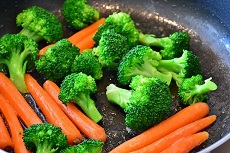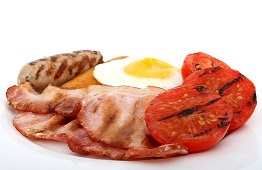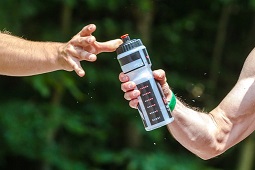How to Produce More Seminal Fluid?
Date:2019-11-04 click:0
Normally, men will ejaculate 2-6ml of semen every time. When the amount of semen is less than 2ml, it can be confirmed that seminal fluid is too little. However, it should be noted that less semen does not mean less sperm.
Patients with less seminal fluid are often accompanied by low back pain and weak knees, mental fatigue, emaciation, or abdominal distention, or tingling during ejaculation, spermatorrhea, etc.

The main causes of less semen include frequent sex, insufficient semen storage, stimulation like long-term mental tension and various stress, various systemic chronic consumptive diseases, such as tuberculosis, malnutrition, and other local diseases of the reproductive system, such as prostatitis, seminal vesiculitis, etc. So how can men produce more seminal fluid?
1. Foods rich in vitamins
Vitamin A, B, C, E, and so on are important substances to provide sperm and semen, promote sperm synthesis and metaplasia, regulate gonad function, enhance sperm vitality, protect the anti-infection ability of accessory gonad and maintain the whole metabolism process of sperm.
These vitamins are widely found in animal liver, vegetable oil, green leafy vegetables and carrots, peas, tomatoes, lentils, lettuce, cauliflower, pumpkins, potatoes, Shirley, cabbage, garlic, dates and fresh fruits.

2. Foods rich in zinc
Zinc is the main microelement for sperm production and maturation, which is the key to ensure sperm quality. The production of sperm needs zinc, selenium, copper, cadmium, and so on, among which zinc and selenium are the most important.
The content of zinc in testis, epididymis, and prostate is rich in men. The zinc in seminal plasma is mainly secreted by the prostate, most of which are bound with protein and participate in normal reproductive function. The foods with high zinc content include lean meat, pig liver, fish, egg yolk, etc. Oysters are the most zinc-rich food.
3. Foods rich in high protein
Protein is the main substance that produces semen and sperm in the male body, such as lean meat, pig spinal cord, eggs, fish and shrimp, crab, scallop, milk, goat milk, chicken, and duck, beef and mutton, and bean products.

In addition, such as eel, sea cucumber, crab, blackfish, cuttlefish, octopus, tendons, etc., not only contain a lot of high-quality protein, but also rich in arginine The foods with high arginine include frozen tofu, tofu skin, peanut, walnut, sesame, pigeon egg, laver, light vegetable, etc. Arginine is an essential component of spermatogenesis. The supplement of arginine from food is beneficial to spermatogenesis.
4. Foods rich in sex hormones
Chicken liver, eggs, helmets, and other cholesterol and lecithin rich in sex hormones and synthetic hormones can promote spermatogonial cell division and maturation, which is beneficial to spermatogenesis.
Nuts can also play a role in promoting the secretion of male sex hormones, especially walnuts and hazelnuts, which can play a role in nourishing blood, kidney, lung, and stomach, as well as promoting cell renewal. (Note: Diet therapy can not prevent or treat diseases.)

In addition, men should drink more water, which can promote the discharge of inflammation and prevent urinary tract infection. In addition, proper physical exercise and maintaining a healthy weight, no smoking, and no excessive drinking will also help men improve sperm quality.
For example, if the condition is caused by prostatitis, seminal vesiculitis, and other causes, in addition to diet and other aspects of nursing, patients should also respond to targeted treatment.
Antibiotics are the main method used in modern medicine to treat prostatitis and seminal vesiculitis, but because of the side effects of antibiotics such as drug resistance and drug resistance, and the complex tissue structure of the prostate, it is difficult for antibiotics to reach the site to play a role directly, so this treatment method often fails to achieve the ideal therapeutic effect.

Herbal medicine Diuretic and Anti-inflammatory Pill invented by Dr. Lee Xiaoping in Wuhan has the functions of diuresis, promoting blood circulation and removing blood stasis, sterilization, and anti-inflammation.
It can remove the inflammation of the genitourinary tract thoroughly, restore the normal function of the prostate, and relieve discomfort. In addition, the anti-proliferation and anti-fibrosis effect can effectively prevent the proliferation of residual lesions and recurrence.
Brown Semen Pose Hazards, What Should One Do?



